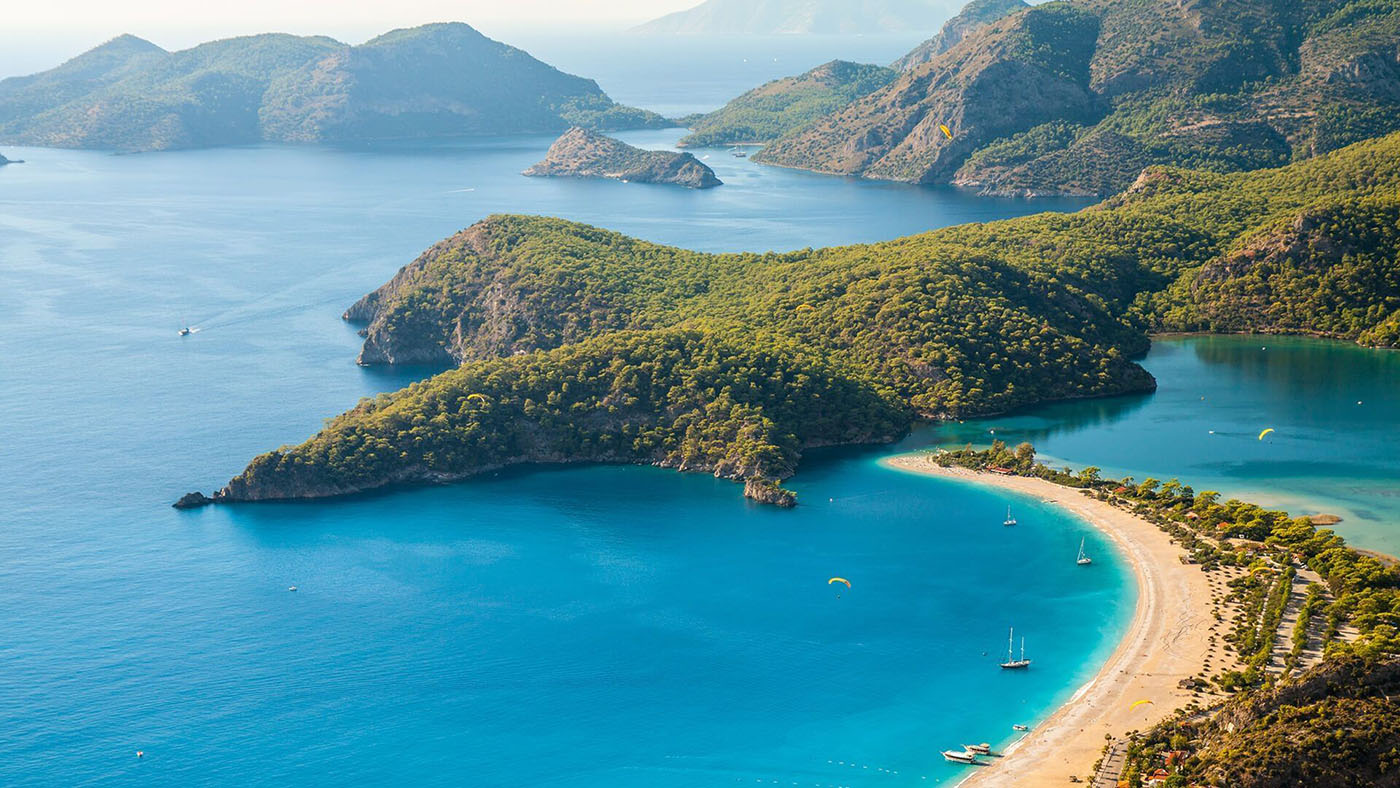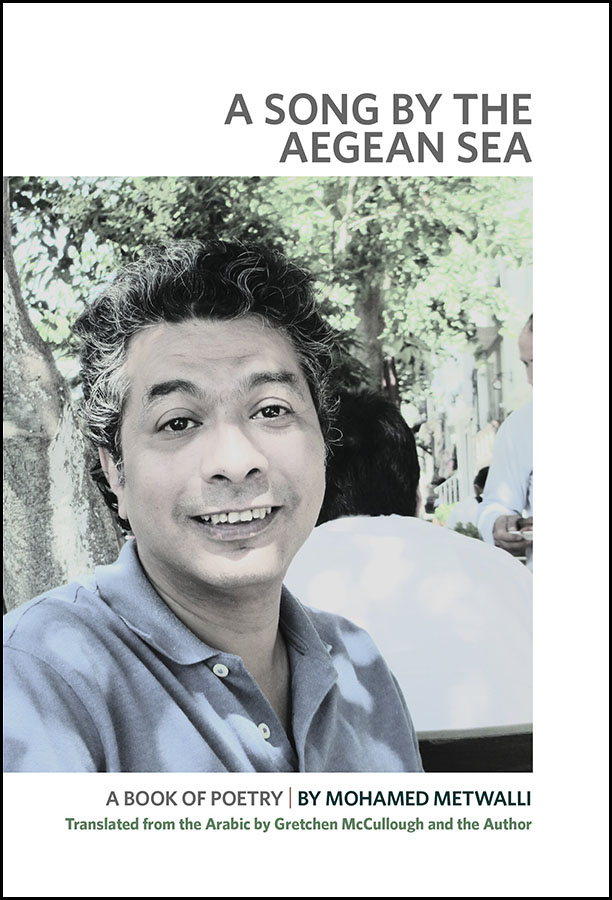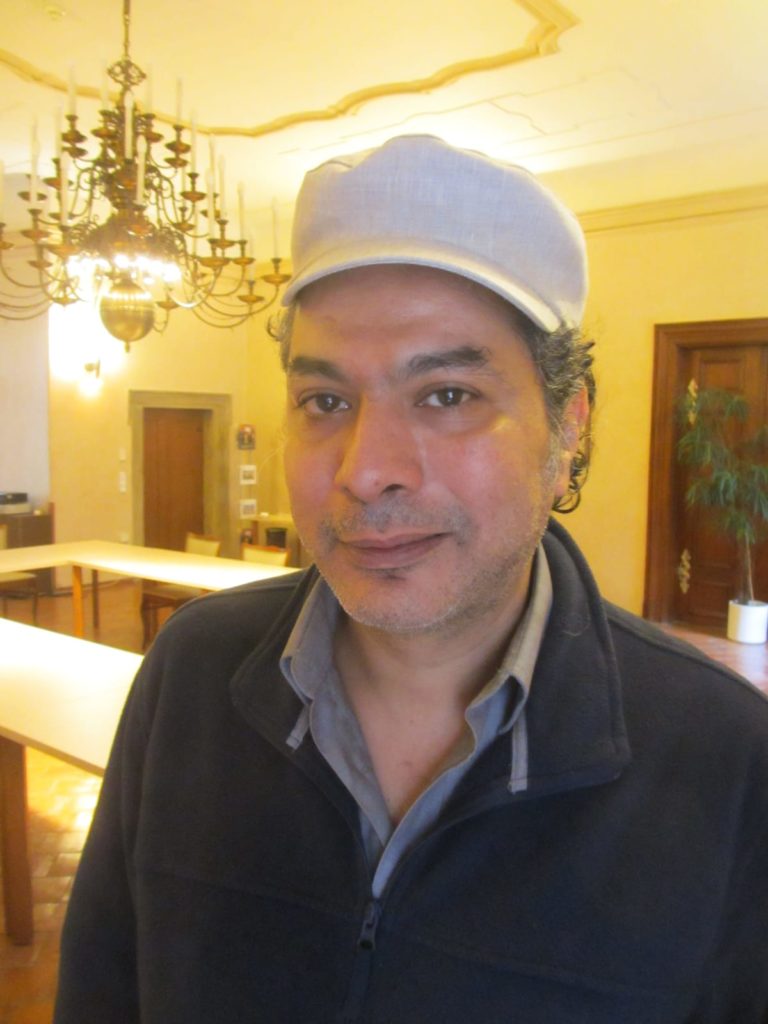
A Song by the Aegean Sea, poetry by Mohamed Metwalli
Translated by Gretchen McCullough and the author
Laertes Books (May 2022)
ISBN 9781942281269
Sherine Elbanhawy
In a world where it is increasingly difficult to travel, whether because of the pandemic, financial constraints, or the relentlessness of our routines and daily responsibilities, Mohamed Metwalli’s poetry collection A Song by the Aegean Sea becomes the perfect form of escapism.

Transporting and transplanting the reader to captivating Izmir, his words bring the cosmopolitan Turkish city to life, each vibrant scene teeming with nuance and detail: gypsies selling flowers alongside the protesters in the poem “One Flew East, One Flew West, One Flew Over the Izmir Bay”:
The gypsy seller of national flags
Wished to join the demonstration
or the roving musicians stopping to play soccer:
You belched roving musicians
Playing ball in their leisure time
Leaning their instruments
Against the wall of your exhausted lung
and the mussel sellers in a heated duet with the State:
As for the mussel sellers
Chased by the municipality
They blew safely out of your nostrils
With the smoke of tobacco.
We walk beside him through the streets of Izmir, listening to his conversations and observing through his eyes:
An orange moon
Above the Aegean Sea
Viewed by a couple of tourists coming from Egypt
From a hotel balcony
Who never believed—till this moment—What they had beheld!
This is Metwalli’s fourth collection, and it is beautifully captured by Gretchen McCullough’s careful and perceptive translation. In her introduction, she describes the poet traveller as a “singer of the Aegean song who yearns to become part of the scene. (…) It’s an impressionistic yet surreal canvas from a stranger’s point of view.”
I become enamored with the Izmiri landscape, and I am not alone; the picturesque coastal mountain bathed in sunlight moves the gypsy into song: “The gypsy rose-seller as well/Gazed at it/And burst, out of the blue, into a melancholy song.” As well, memories stir, “How reminiscent of Beirut is tonight! Pins of lights adorn the coastal mountain” and introspection prevails, in “Who Dares Approach”:
And remember the word of Gibran
Whence, an Egyptian poet stood
In front of his tomb—on the mountain top—in Beirut
Getting the goose bumps
Since the spirit of Gibran was infused into his veins
Telling him some of the old parables.
And, in the same poem, ghosts encroach:
Yet the words of Hipponax
Kept hovering above the place
Accompanied by his ghost
And ready to assault the veins of any poet
Who dares approach!
The poems are in chronological order, with one 2014 January winter sandwiched between two June summers (2013 and 2014). All the poems emanate from the poet’s stays at the Izmir Palace Hotel, where his viewpoint, interactions, and observations are almost voyeuristic, in “Occupied by the Sea”:
When he met her between the two palm trees
And kissed her beneath the hotel
When she glanced above
And the Bohemian poet, from his balcony, smiled to her
And she smiled back.

We meet the Greek Smyrna, today Izmir, through its living inhabitants, its unsung heroes, the restaurant waiters, street vendors, construction workers, gypsies, tourists, and even its birds (seagulls, ravens, larks, one dove, and one hoopoe), “To the carcass of a dove/Struck by lightning in front of my very eyes/Devoured, later, by the raven and the seagull.” The street cats and dogs are sometimes described as fat or stout and pepper the poems, interacting with the humans, the Aegean Sea, and the city at all hours of the day and night. The dog’s song, “The coastal dogs howled/Steering their heads towards the sky,” contrasts with the lazy lounging cats, “Who spend half of their time/Devouring the leftover fish from the restaurants/Or from the fishermen/And the other half, sleeping/Or licking their bodies.” There are even poems dedicated to each, “The Smile of a Dog” and “The Cats of Izmir.”
A palpable levity can be found in several of the poems, for instance, “A woman in her white wedding gown/Wails in front of the sea/After the groom jumps into the water for his life/Nothing of him later appeared but a black smoking suit/Afloat with an exclamation point on top!” and Metwalli’s tone is often playful: “A raven alighted on my table/Pecked at my pistachios and tasted my wine/Then gave me a quick reproachful look.”
Love is a theme, a thread that runs through Izmir. “Two lovers froze under a shrub,” and Metwalli captures many intimate moments, “Two lovers in a seaside restaurant/Clinked their glasses/To an illicit night,” as if simply being in the city enables these moments to occur, “And the lovers who sheltered/Under the shade of a shrub/Away from the sun and the curious eyes.”
The orange moon also recurs, “Who viewed an orange moon the day before—Gradually dimming into utter darkness till it disappeared—” with two poems dedicated to the moon in general, “A Raven, A Moon” and “A Smothered Moon”:
Oh my, oh my!
Where did my moon go
Behind the black clouds
Or did you not know?
Thus sang us the gypsy
For a pair of liras
That night, we,
Waxing lyrical,
Almost jumped into the sea,
A smothered moon
For which the farmers in my country
Kept beating the drums, banging the pots
Until it glowed
Is it so, you Aegean Sea,
That your moon suddenly vanishes,
Smothered,
Behind a black cloud?!
There’s a sensuality to the poems when Metwalli describes the body:
Then, the city was teeming within your body
You disgorged a few beauties
Sashaying along the coast
In skimpy shorts
and in the many moments of affection, embraces, and warmth:
In the night of Izmir
Giving him a deep kiss
Leaning back with her body.
The Aegean Sea is mentioned in practically every poem; it is the lifeline of the city and of the poet. Metwalli questions, “Is it in the Aegean Sea that souls get fathomed?”
As readers, we search for the answer in the sounds and literal places — the seafront, the park, cafés, restaurants — and figuratively, in “the bed of the sea” and “the dark sea.” The poet wants the reader to understand that all answers lie in the sea’s warped, out-of-sync, blurriness, that “the sea is enough.” “The page of the sea blends” with his words, and “the sea penetrates your pores/You sweat in beads of salt,” and he advises the reader to relinquish their body to the sea, “You still sit on your balcony/Between the two palm trees/In front of the water/And there comes the sea to absorb you/To draw the best out of you.”
It is an invitation into his surreal world, where life exists in a different dimension, a different color, beating to a different tune, “Don’t resist the sea when it occupies you—I know someone who tried to resist the occupation of the sea/Searching for an alleged independence, He ended up depressed and drowned—”
I feel swallowed whole by Metwalli’s words, and rebirthed in Izmir, surrounded by bustling tourists, larks, and lovers, in thrall to the city’s magical charm and its resounding sea, forever indebted to its orange moon.



